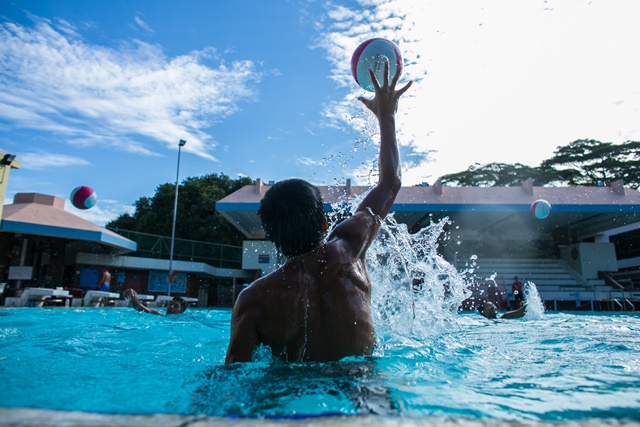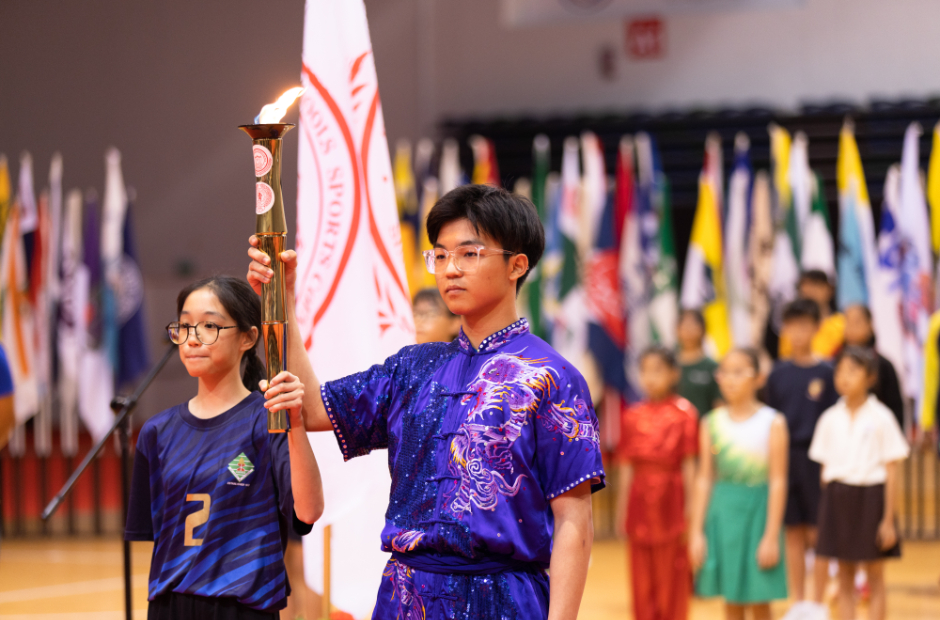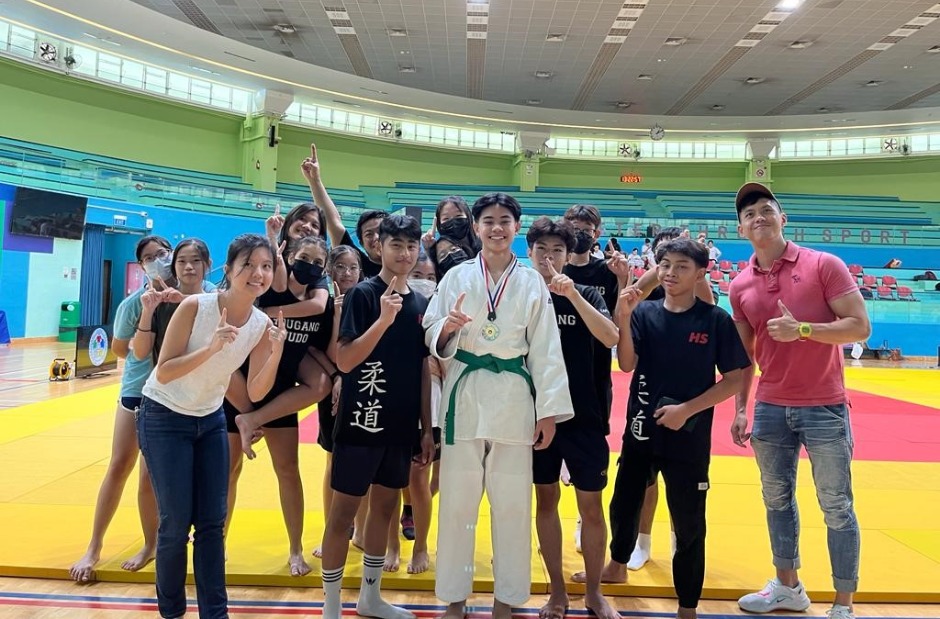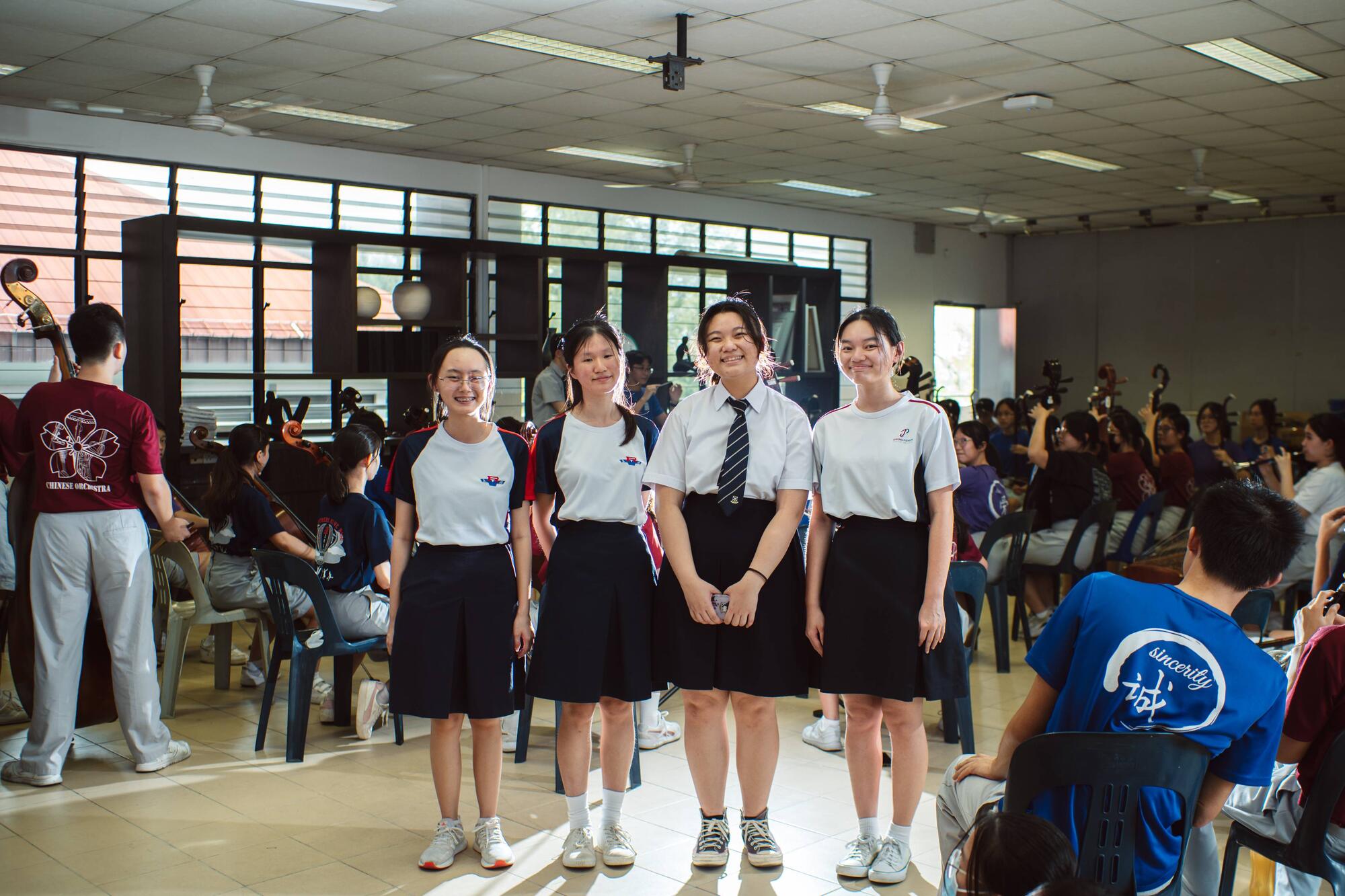CCAs: Burden or Benefit?
05 Nov 2015

While some may lament the extra hours, this mother vouches that CCAs are worth the effort as children learn values that can’t be replicated elsewhere.
Her son Keefe Chong, now 15, used to be so shy and quiet that when he was in a group, you wouldn’t even notice him, says Ms Janice Ong, 38, a single mother of two. “He was usually alone and wouldn’t take the first step to socialise.”
However, all that changed when Keefe was chosen to join Outram Secondary School’s water polo team. He wasn’t keen on it as he had had his heart set on rock climbing.
After a lot of encouragement from his mother, Keefe relented and joined the team. “Because he’s a bit of an introvert, I thought it’d be good for him to experience teamwork and build his team spirit.”
While the first few months of training went well for Keefe, Ms Ong admits she was concerned about the rigorous daily training and long hours. She was surprised to find out that the water polo team had its own Parents Support Group (PSG) and decided to get involved despite her busy schedule. She wanted to gain a firm understanding of what went on during the boys’ training sessions and what better way to do that than being a volunteer?
A Different Ball Game
“The training built his confidence,” she says. “The students took turns leading warm-ups and serving as captain. As a captain, Keefe had to tell the other kids what to do. This was something I never imagined he’d be doing.”
While the training was tough – especially when they were punished for being late or not playing well together – Ms Ong appreciated how it taught the boys responsibility and teamwork. “These soft skills are just as important as grades,” she says. “Sometimes when I see them do 500 frog jumps or 200 push-ups, I feel ‘heart pain’ but it’s good training for them.”
Keefe was inspired when the senior members of the swim team beat defending champions Anglo-Chinese School (Independent) to win the National B Division Water Polo Championship for the first time in the school’s history.
“He told me, ‘The next time, I’ll be the one beating them.’ He never thought Outram could beat a school that had been champions for so many years,” Ms Ong recalls.
“It was a good lesson for them. You never know how far you can go. It’s not only about your capability but also your determination. If you’re determined, your capability will also increase.”
For some of the boys, says Ms Ong, being in the team also helped them to balance school with CCAs and be more disciplined about schoolwork. Before their training, the boys had to complete their homework in a classroom set aside for them. It also helped that there was open communication between the teacher-in-charge, the coach and the parents. There were constant updates via WhatsApp and teachers would put up post-game reports, photos and motivational quotes on the CCA’s Facebook page.
“It’s important to talk to the teachers so you know what’s going on with your child,” Ms Ong says. Mr Francis Tang, the teacher-in-charge of the CCA, noticed that Keefe was a bit of a loner so he made him the goalkeeper. Ms Ong was impressed by the teacher’s thoughtfulness.
“He had his individual role to play yet at the same time, he was part of the team.” She was also thankful that the teachers were flexible enough to allow Keefe to skip training sessions when he had tuition and piano lessons.
Strong Supporters
Ms Ong was heartened to see her son enjoy himself and hear him talk excitedly about the sport. “He would even try to train at home,” she says. “Sometimes, he would ask his sisters to scrunch an article of clothing into a ball so he could try to catch it.”
Keefe wasn’t the only one having fun. Ms Ong enjoyed her role as a parent volunteer and always attended the team’s training sessions and competitions.
“During competitions, the parents’ voices were the loudest,” she says. “We also tried our best to coordinate the colours we wore.”
Teachers and parents sent updates via their mobile group chat to keep those unable to attend in the loop. The parents also rewarded the boys for training hard. They bought cakes, chips or chocolates and cooked simple meals like bee hoon for the boys. They also organised barbecues every other month to celebrate the boys’ birthdays.
When new parents expressed concerns about the long training hours, the PSG volunteers tried to reassure them. “I was once like them, questioning why the boys stayed out so late,” Ms Ong says. But Mr Tang’s reply moved her. “He explained that most parents were working and if he released them earlier in the day, there would be no one at home. To ensure that they didn’t go out and fell into bad company, he dismissed them at 7pm when most parents could either pick them up or be home. I would pass the same message on to parents new to the group,” Ms Ong says.
Building Bonds
Ms Ong enjoyed the camaraderie with the students and parents. “As parents, we all have different views,” she says. “Perhaps someone has a better viewpoint than you. Parenting is not something you can do alone.”
Besides sharing parenting dos and don’ts, they’re also there for one another’s children. “Kids might not listen to their own parents but they might listen to other parents. They might think other parents are more objective,” she says.
The sport has also drawn mother and son closer together. They have more in common to talk about. And Ms Ong has watched Keefe grow in confidence and acquire a mind of his own.
It’s the simple things that Ms Ong treasures most, like spending a whole day together hunting down the “Warrior” brand school shoes Keefe wanted.
“Our relationship is better,” she says. “Previously he would never tell me what he was thinking about or what he wanted.”
Keefe also learnt to take better care of his younger sister Perth. “He has changed. They used to quarrel a lot but now he’ll share his things with her.”
More than just an avenue for students to de-stress and discover their strengths, CCAs help develop character and soft skills like communication and teamwork – in a fun way.
“When your child enjoys what they are doing and has fun, families also get to enjoy. It’s important for parents to communicate and be involved in whatever the kids are interested in. You have more things to talk about, not just schoolwork,” Ms Ong says.
“If school is all about schoolwork, they have no life. CCAs give your children and you a bit of a life.”


.jpg)

.jpg)
